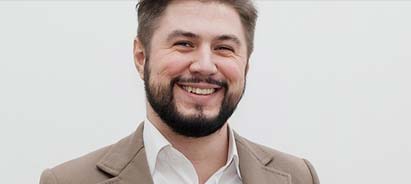
The 10 most in-demand courses for mental health professionals
from the Association for Psychological Therapies.
The Association for Psychological Therapies' top 10 most ordered courses over the past 3 months (training that people have commissioned to be delivered exclusively for their team, either face-to-face or live online).*
*Updated February 2026.

10.
The DBT Masterclass.
A 4-day course.
By attending the DBT Masterclass you are expected to substantially develop both your knowledge of DBT and your skills.
The major teaching techniques on this course are case presentation and discussion, video-presentations, and reflective exercises (where you analyze and describe the practice of DBT in your workplace). You will gain most benefit from this course if you leave a gap of several months between attending DBT Essentials / Running DBT Skills-Development Groups and this one, developing your DBT skills in those months so your have material to present and discuss on this course.

9.
CBT for OCD.
A 2-day course.
Obsessive Compulsive Disorder usually takes over the sufferer's life, and it is the behavioral element of CBT that come to the fore in treating it.
An obsession is where the person has a fixed idea that is distressing (e.g. that their hands are contaminated and will lead to a serious illness or death) and a compulsion to perform a particular behavior (in this case, probably to wash their hands). This often has a ritualistic nature to it (e.g. to wash 3 times) and the whole syndrome can devastate a person's life both in terms of time, relationships, and finances. This course covers the Cognitive Behavioral Therapy solutions to OCD.

8.
APT's unified approach to working with Psychosis, Course 1:
CBT for Psychosis - Key Knowledge and Skills for Everyday Interactions.
A 3-day course.
This course examines and teaches the skills that are fundamental to working with anybody who is prone to episodes of psychosis. Skills such as how to engage, how to talk within the person's belief system, how to use Socratic dialog and the 'floating of ideas', what is and what is not 'collusion', and more. It looks at using these skills in formal one-to-one sessions and also in informal situations.

7.
CFT Essentials (Compassion Focused Therapy).
A 3-day course.
An exposition on Compassion Focused Therapy, in a way that enables and encourages delegates to use it in their practice.
Although compassion focused therapy is delivered compassionately, its main focus is to encourage patients to be compassionate towards themselves. This is achieved by (a) specific techniques and approaches we cover on the course and (b) by educating patients about what happens in the brain so they realise that their emotions, behaviours, thoughts and fantasies are not their 'fault', and yet they can take certain actions to make things better for themselves (which we also cover). This is a course for people who do not necessarily want to be exclusively “a compassion focused therapist” but certainly DO want to know all about compassion focused therapy in order to build CFT ideas and techniques into their clinical repertoire. It therefore covers both the theory and the skills of CFT in a way they can be applied immediately.

6.
The DICES® System for Risk Assessment & Management.
Available in 3-day and 2-day versions.
The DICES® system makes risk assessment clear, structured and person-centred. Over 6,000 professionals now use the DICES® Checklists to support their practice because they are practical prompts, not questionnaires – they help clinicians bring together key factors, apply their expertise, and create a person-centred risk formulation in line with NICE guidance.
At its heart is the DICES® ‘risk triad’:
- Identify and formulate risk.
- Manage the risk.
- Deliver effective treatment with confidence.
The training covers the first two of those and introduces the third, and is available as a 2-day course for most practitioners, and a 3-day course for senior personnel or DICES® champions who need greater depth.

5.
Motivational Interviewing, and how to use it effectively.
A 3-day course.
Also known as the ‘Essentials course’ this course is available 'Open' (where you come to us) or Onsite (we come to you and deliver it to a group of up to 15 delegates).
Based on Miller and Rollnick's latest book, this course describes an organised way of helping people to recognise their problems and to do something about them. Principally it addresses behaviour about which the client has mixed feelings: drinking and substance misuse for example, but a surprising array of common mental and physical health problems as well. Issues from taking psychoactive medication through to eating more healthily can all be addressed using motivational interviewing.

4.
ACT Essentials (Acceptance & Commitment Therapy).
A 3-day course.
'Once in a while there is a unique contribution to psychotherapy.'
Acceptance and Commitment Therapy (ACT) moves away from focusing too closely on ‘symptom reduction’ towards teaching how to live in a stable and rewarding way. So it teaches how to get in touch with your values, how to act in accordance with them, how to be aware of ‘the you that is always there’, how to see your passing thoughts and feelings for just that, how to accept thoughts and feelings you don’t like without over-struggling with them, and so how to live mainly in the present.

3.
SFT Essentials (Solution-Focused Therapy).
Also known as SFBT (Solution-Focused Brief Therapy).
A 3-day course.
An approach to problems that is fundamentally positive and comes as a breath of fresh air to professionals and clients alike.
Another of APT's top courses, this aims to introduce you to the principles of SFT / SFBT in a way that gives you a firm grasp of them and enables you to use them in a safe and helpful way. You should become at home with the approach which is often seen as a 'breath of fresh air' both to client and professional, looking for and finding effective solutions for problems, rather than being sucked further and further into the problem itself.

2.
DBT-A: DBT for Adolescents.
A 3-day course.
Instruction in the key components of DBT for those who want to apply DBT to working with adolescents.
DBT brings together a series of skills and techniques which are powerful and well chosen ones, and DBT-A focuses it on working with adolescents. Whether you want to simply learn about DBT and how to apply it effectively, or are thinking of establishing a full DBT service, this course has it covered. The course covers the delivery of effective DBT at its most relevant for adolescents, including: confusion about self, impulsivity, lack of emotional control, interpersonal problems, family problems and dilemmas, high risk behaviours, including suicidal behaviour and non-suicidal self-injury.

1.
The RAID® Course. The positive approach to working with disturbed and challenging behaviour.
A 3-day course.
A relentlessly positive approach to working with disturbed and challenging behaviour.
The 3-day RAID® course is a leading positive psychology approach for tackling disturbed and challenging behaviour at source: over 20,000 professionals have attended it. It is a comprehensive approach which teaches staff a philosophy and practice not only to deal with disturbed and challenging behaviour when it occurs, but also to prevent it by tackling it at source. Staff feel pleased to share a unified system and to know what they are doing and why they are doing it, while clients delight in a relentlessly positive and empowering approach. The essence of the RAID® approach is to play down disturbed and challenging behaviour as far as safety allows, and to nurture and develop positive behaviour so that it systematically overwhelms and displaces the disturbed and challenging behaviour.

View all courses available.
The APT offers a range of over 80 separate courses, all of which are available exclusively to your team.
They can be brought to you live face-to-face, or live online via Zoom or Teams. Click below to see all courses.


